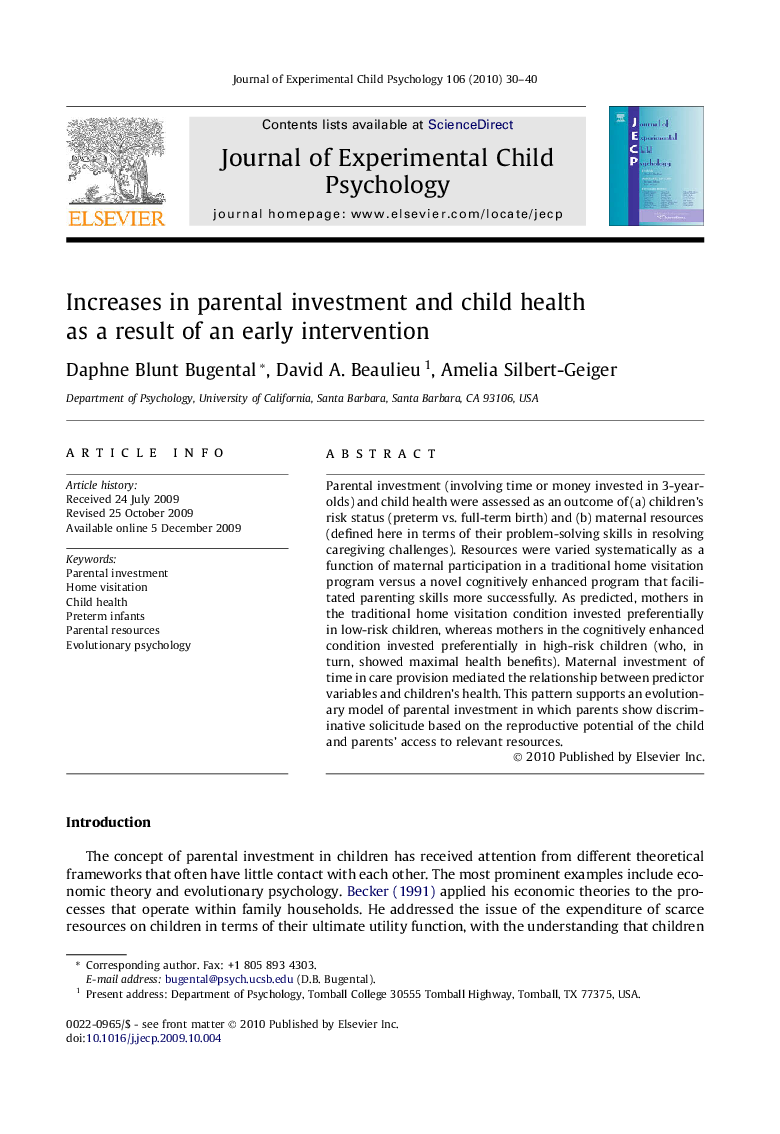| Article ID | Journal | Published Year | Pages | File Type |
|---|---|---|---|---|
| 918539 | Journal of Experimental Child Psychology | 2010 | 11 Pages |
Parental investment (involving time or money invested in 3-year-olds) and child health were assessed as an outcome of (a) children’s risk status (preterm vs. full-term birth) and (b) maternal resources (defined here in terms of their problem-solving skills in resolving caregiving challenges). Resources were varied systematically as a function of maternal participation in a traditional home visitation program versus a novel cognitively enhanced program that facilitated parenting skills more successfully. As predicted, mothers in the traditional home visitation condition invested preferentially in low-risk children, whereas mothers in the cognitively enhanced condition invested preferentially in high-risk children (who, in turn, showed maximal health benefits). Maternal investment of time in care provision mediated the relationship between predictor variables and children’s health. This pattern supports an evolutionary model of parental investment in which parents show discriminative solicitude based on the reproductive potential of the child and parents’ access to relevant resources.
